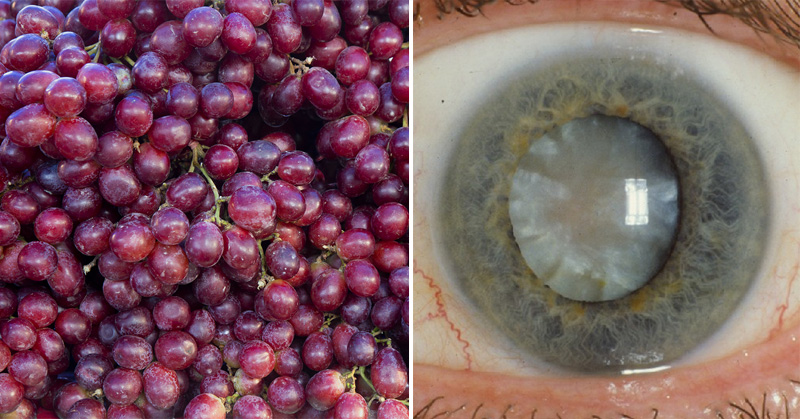Grapes are one of the most popular fruits in the world, for many good reasons. For one, they come in a several varieties. And their texture, sweet taste, and small size are appealing to many people. Furthermore, they are full of nutrients and therefore can help treat and prevent several conditions. For example, grape health benefits include treating asthma, curing migraines, and reduce risk of Alzheimer’s disease. Learn more below!

Here are 14 grape health benefits:
1. Boosts Immunity
Grape health benefits start with boosting your immune system. This fruit is jam-packed with flavonoids, minerals, and vitamins, such as vitamins C, K, and A. Keep colds at bay by snacking on grapes regularly.
2. Strengthens Bones
The micro-nutrients in grapes, such as cooper, iron and manganese, all play important roles in the formation and strengthening of bones. In fact, adding grapes to your diet can prevent such conditions as osteoporosis. (1)
3. Prevents Heart Diseases
Grape health benefits continue with the ability to defend against heart attacks. This is due to grapes increasing the nitric oxide levels in the blood, which prevents blood clots. Furthermore, grapes have antioxidants, which prevents the oxidation of LDL cholesterol. (2)
4. Cures Migraine
If you suffer from migraines, you might try treating them with grape juice. You should drink it early in the morning without mixing in additional water. While red wine can cause migraines, ironically enough, grape juice can cure them.
5. Treats Constipation
Grape health benefits extend to your digestive system, as well. As they contain organic acid, sugar and cellulose, they are considered a laxative food. Plus, the fiber in grapes lends itself to healthy bowel movements. However, do not eat grapes as a means to treat diarrhea. Grapes do not have enough soluble fiber to dry out loose stool. (3)
6. Decreases Fatigue
Anemia and anemia-like symptoms, such as fatigue, is a definite problem for some people. This is where grape health benefits come into play again. White grape juice provides you with iron and helps prevent fatigue. However, dark grape juice may have the opposite effect—it can actually deplete you of iron, so be sure to stick to light and white grape juice concerning this area.

7. Controls Diabetes
Studies show that grape skin extract can inhibit hyperglycemic activity. As such, it may help in the management of diabetes.
8. Dental Care
Grape health benefits include your teeth, too! While red wine and grapes are traditionally associated as being bad for your teeth, they can actually help prevent cavities! (4)
9. Treats Kidney Disorders
Due to their high water content, grape health benefits also include the ability to help treat kidney disorders. For example, the water content can reduce the acidity uric acid causes. It does this by inducing urination. This reduces stress on the kidneys.
Overall, grapes have a notable cleansing effect on the body. Your kidneys, as well as your whole body can benefit from this effect.
10. Balances Blood Cholesterol
Grape health benefits continue with balancing blood cholesterol. This is because grapes have a component called pterostilbene, which can lower cholesterol.
11. Antibacterial Activity
Red grapes, with their powerful and antibacterial and antiviral agents, are great for protection against infections. In particular, they are effective against polio and herpes simplex virus. (5)
12. Prevents Breast Cancer

Purple, concord grape juice is not only great-tasting, it’s great for preventing breast cancer, as well. There are certamin chemicals in purple grapes that aromatase from changing androgen into estrogen, which is believed to be one of the major contributors to breast cancer. (6)
13. Reduces Risk of Alzheimer’s
Grapes have a beneficial polyphenol called resveratrol. According to a study published by the British Journal of Nutrition, this can help improve cognitive decline in those who have already shown signs of mental decline. (7)
14. Reduces Cataracts
Grapes have antioxidants, which can fight the damage free radicals cause. This also prevents a laundry list of age-related diseases, including cataracts as well as macular degeneration.


